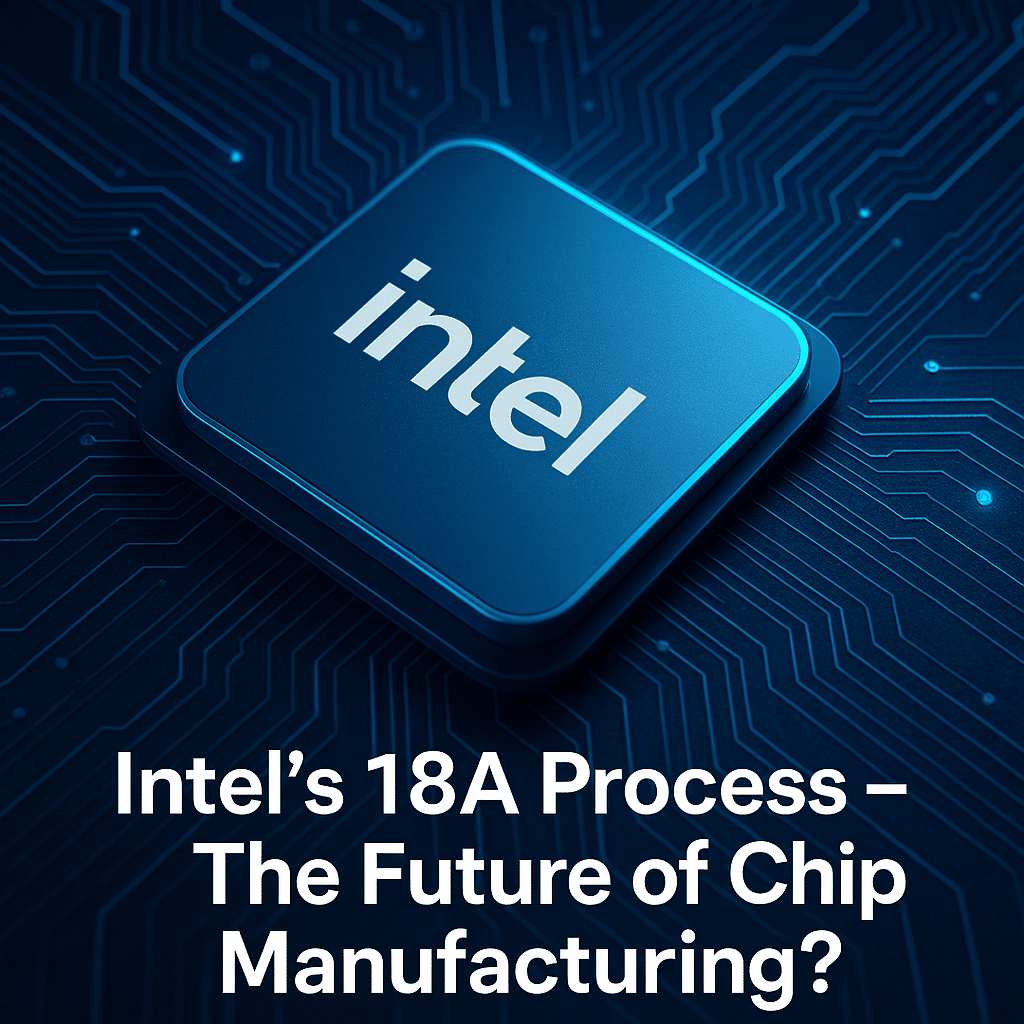
Intel’s 18A Process – The Future of Chip Manufacturing?
Posted on May 1, 2025
Intel’s new 18A foundry process has been making the headlines, being touted as a game-changer for chip fabrication and Intel’s place in the market. But what exactly is 18A and why is it such a big deal? Let’s take a look.
How Chip Fabrication Works
Semiconductor manufacturing is a very delicate process, with complex integrated circuits fabricated on thin wafers in specialized environments. The wafer is “diced” to give individual chiplets, which are then combined to form the various processors in a lineup.
While the basics of the process remain more or less the same, its precision keeps improving with time, resulting in smaller and smaller chips. This lets more processing power to be packed into the same area, creating even more powerful CPUs.
The increasing miniaturization of the fabrication process also cuts down manufacturing costs, since much more viable silicon can be diced out of the same batch. This is why companies are always in a race to develop ever more precise fabrication processes.
Taiwan’s Dominance
The technology of chip fabrication was invented in the United States, but it swiftly spread across the globe. And surprisingly enough, it was Taiwan that emerged as the market leader in high-performance semiconductors.
While it is not the only manufacturer of computer chips (both Intel and Samsung have considerable production of their own), it is the biggest producer, especially in the highly competitive segment of computer chips.
Even manufacturers like Intel outsource many of their chiplets to TSMC (Taiwan Semiconductor Manufacturing Company), to say nothing of fabless companies like Qualcomm who depend entirely on the Taiwanese company to produce its chips.
The Need For Diversification
The supply chain disruptions during Covid 19 drove home why putting all your eggs in one basket is a risky move. And Taiwan is in a risky position geopolitically as well, threatened constantly by China.
The problem is that semiconductor manufacturing is not that easy to break into. TSMC has a significant tech lead which makes it the market leader, and simply setting up fabs that use inferior processes won’t be enough.
To be able to bring semiconductor manufacturing back to the US, companies like Intel need to devise a new process that can disrupt the market.
18A Process – Intel’s Bet on the Future
Semiconductor manufacturing processes keep getting more precise, and TSMC has been working on its 2 nm process. Intel too experimented with 2 nm (or 20A as it instead named it) but switched tracks to its even more miniaturized 18A process.
And it has found success with it. Intel has already managed to manufacture 18A wavers in multiple fabs, proving its ability to scale up the production of the chip. Which is crucial, since Intel has announced that their next line of Panther Lake processors will be based on this same 18A process.
And this is big. For the first time in a long while, Intel would have wafers that could beat TSMC’s offerings in the market. This allows it to reduce its reliance on TSMC, which bodes well for other American companies as well.
Will this End TSMC’s Market Dominance?
Currently, almost all chip manufacturers like AMD, Intel, or Nvidia get their designs produced in TSMC’s fabs, simply because its processes are the best at yielding the best wafers. And this is before we get into fabless companies like Qualcomm that are completely reliant on external manufacturers.
If Intel manages to perfect its 18A process and demonstrates the ability to mass produce with it, this opens up a new opportunity for the company. Not only can it produce its own chips without relying on TSMC, but it can also sell wafers to other semiconductor companies, replacing TSMC’s role.
That being said, a single process will not be enough to completely phase out TSMC. Even for Panther Lake, some “tiles” would still be sourced from the Taiwanese manufacturer.
TSMC is also looking to partner with Intel to set up new fabs in the US, which would increase domestic manufacturing as well. With the highly technical nature of the industry, it is unlikely that TSMC would cease to play a role.
